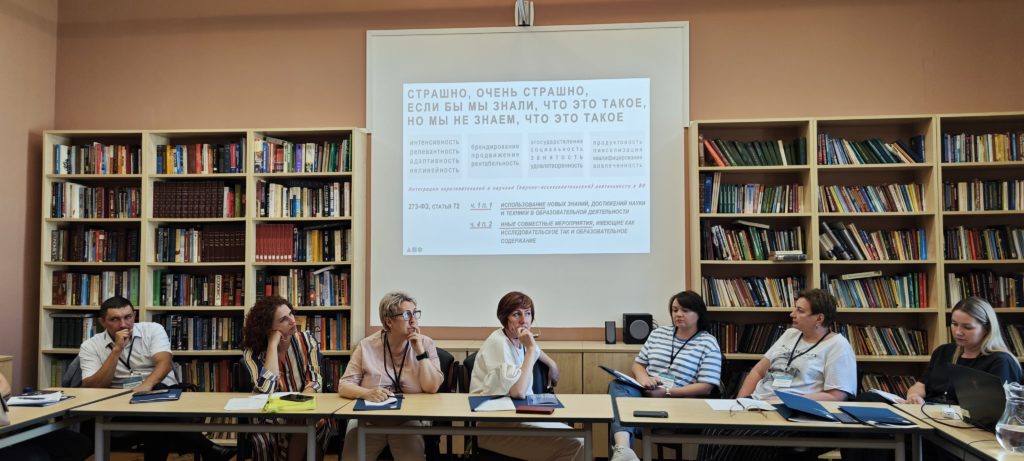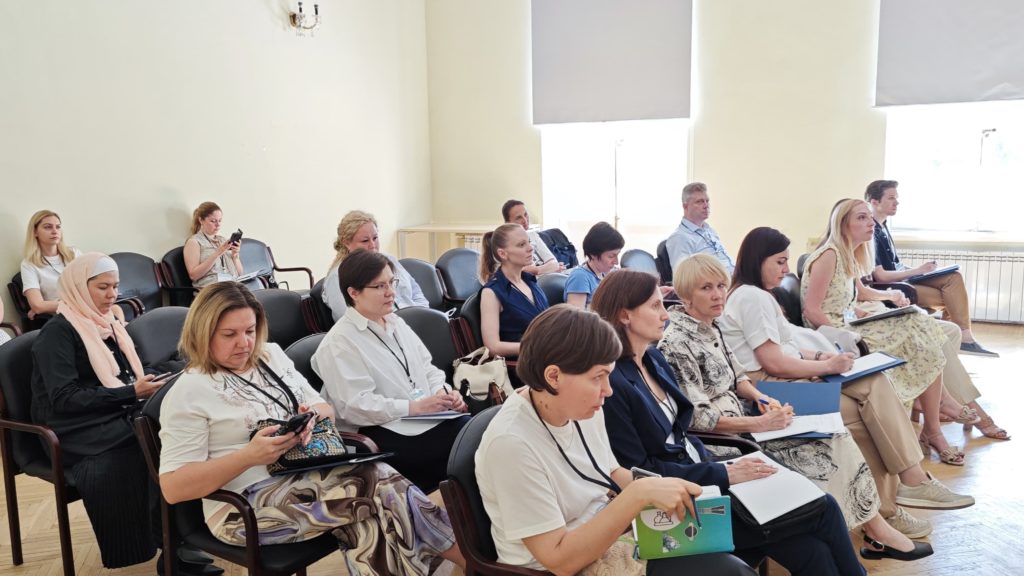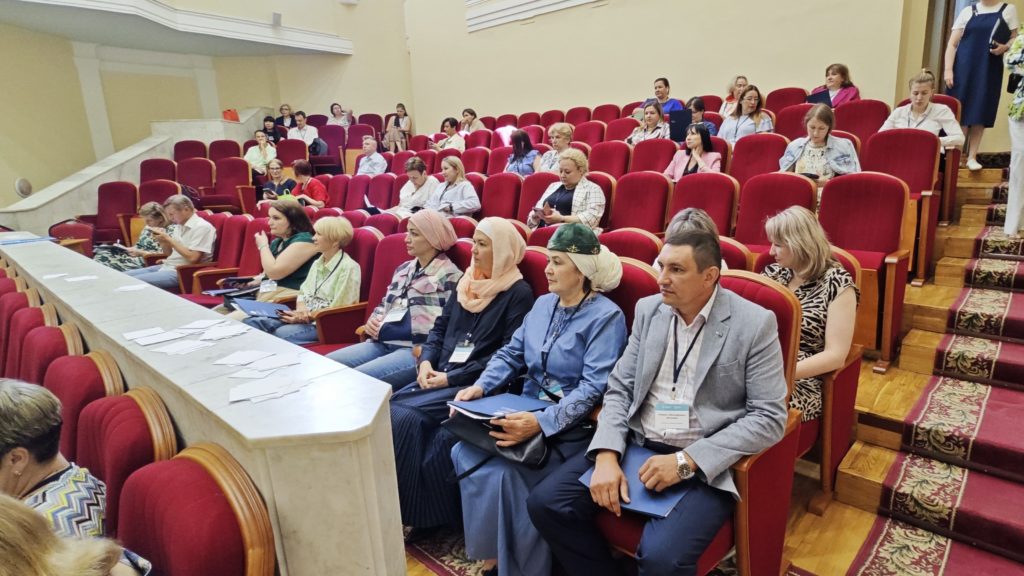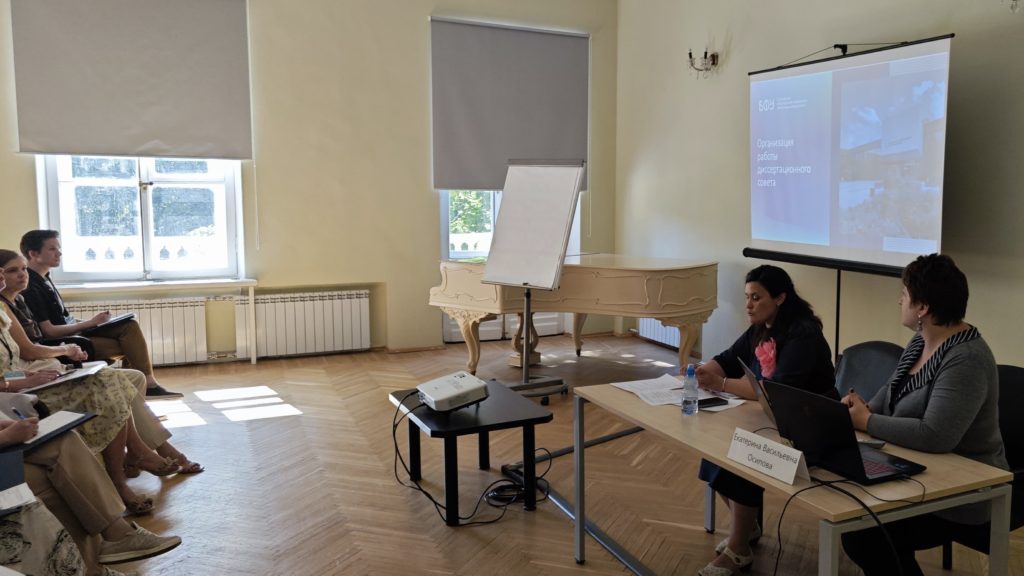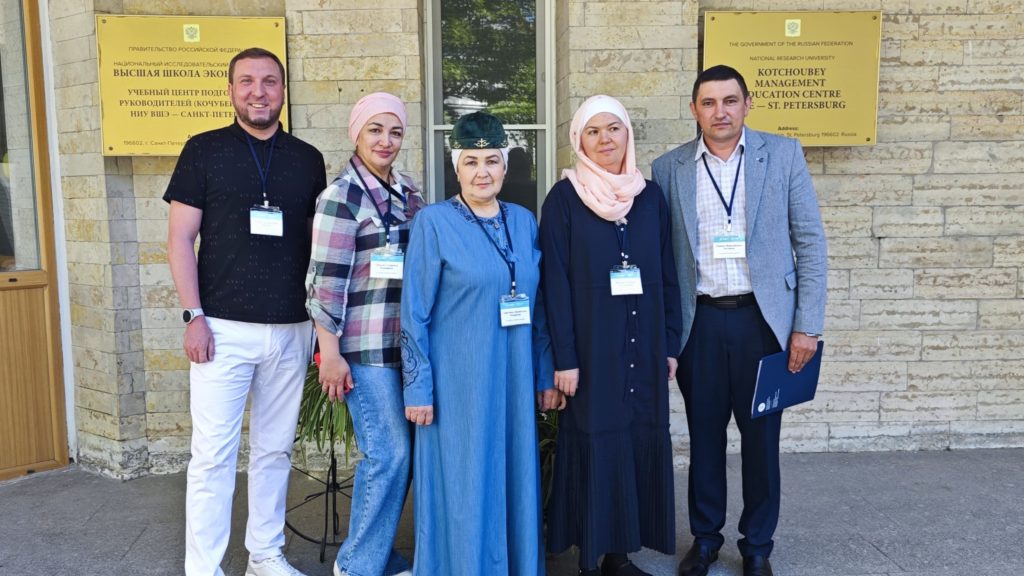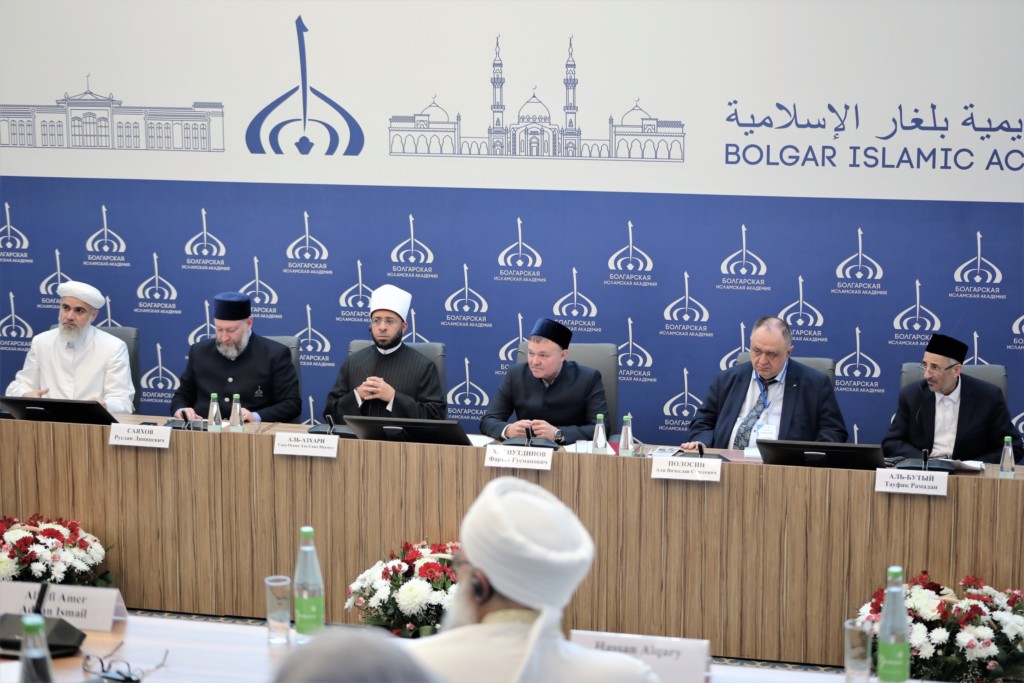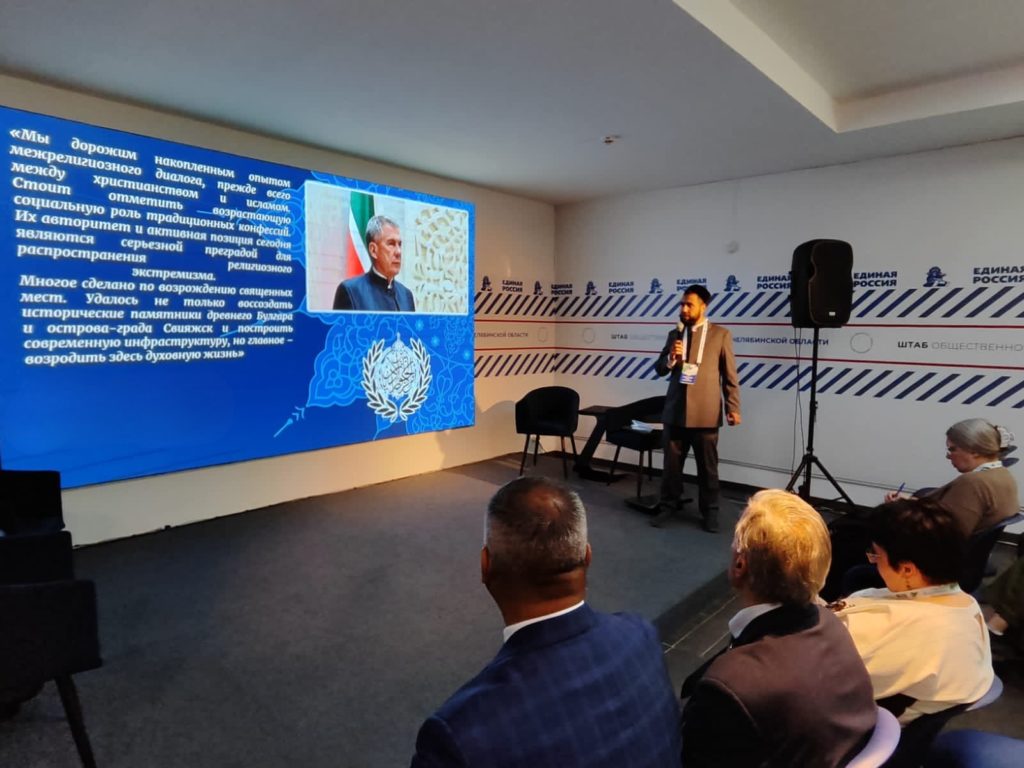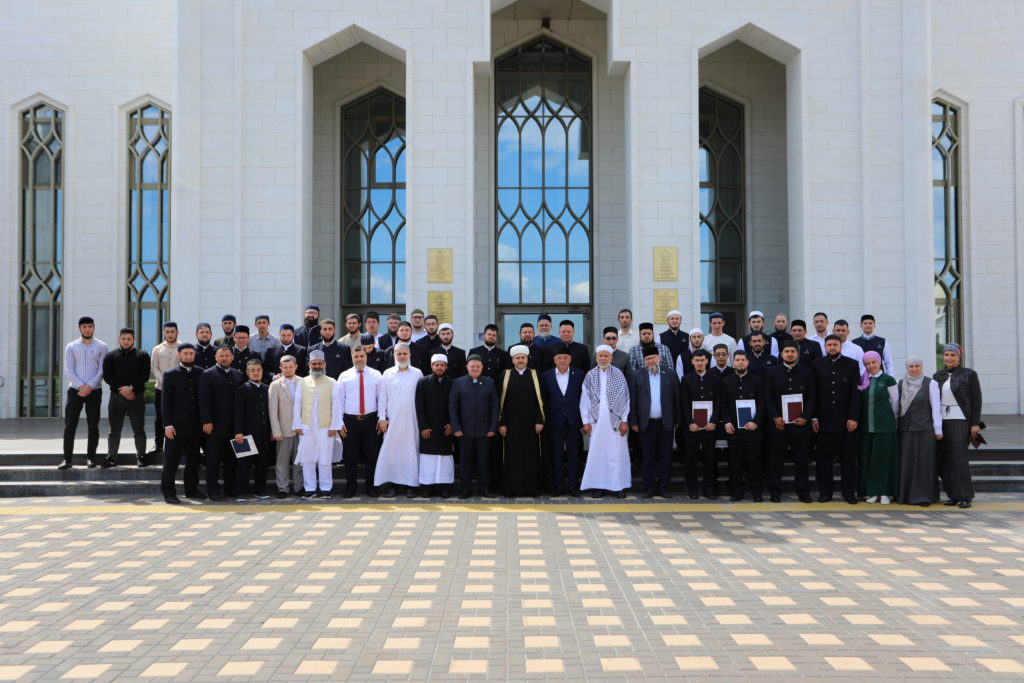From June 26 to 28, in the city of St. Petersburg, at the training center for leaders of the national research university “higher school of economics” (HSE) (Kochubey center), a professional development program titled “training of scientific and scientific-educational personnel: from admission to defense” is being implemented. The courses are organized with the support of the foundation for support of Islamic culture, science and education.
The program is aimed at increasing the professional level in the field of organizing scientific research work of young people and preparing scientific and scientific- educational personnel. Employees of the Bolgar Islamic academy take part in the training: the head of the theology department Svetlana Aidarova, the deputy head of the academy’s education department Gulnaz Khodzhieva, the deputy head of the science department Farida Ismagilova, the deputy head of the education department for educational work Ramil Akhtyamov, and the head of the department for public relations and media, the responsible secretary of the admissions committee Rinat Nuriyev.
As part of the program, case analyses are conducted, group work in sections, Q&A sessions, and general discussions on the organization from admission to defense of scientific and scientific- educational personnel. In the lecture part of the program, listeners studied the legislative foundations of writing a final qualifying work, including the choice of topic, academic supervisor, as well as the specifics of regulating and organizing the dissertation council. During sectional classes, issues related to writing scientific papers, plagiarism checking, writing reviews, as well as preparing scientific articles and publications in the journals of the Russian science center and the higher attestation commission were discussed.
As one of the speakers in the program noted — Leonid Minakov, Head of the Department of Educational and Methodical Work at the Institute of Human Brain named after N.P. Bechtereva of the Russian academy of sciences, when opening postgraduate studies in research organizations, it is important to take into account university approaches, adapting them to their own conditions.
“Work in postgraduate studies is complex, requiring a broad legal outlook, a humanistic approach to learners, and at the same time a steely core within. Over the years of working in postgraduate studies, I see how legislation has changed over the last 5-7 years and how the approach to postgraduate studies has evolved,” explained the expert.
In his lecture, Leonid Minakov elaborated further on the principles of operation and the process-oriented approach to activities in postgraduate studies. In particular, the speaker highlighted the importance of communication between supervisors and postgraduates, ongoing training for academic mentors, and the utilization of opportunities provided by legislation.
As noted by Farida Ismagilova, deputy head of the science department at the academy, participation in the program is a significant step for Bolgar Islamic academy in developing scientific activities:
“The knowledge and skills acquired will enable academy staff to more effectively organize research activities for master’s and doctoral students, provide them with qualified assistance in preparing scientific papers, and enhance the quality of training for scientific and pedagogical personnel,” emphasized Farida Ismagilova.
In the concluding days, there will be discussion sessions, individual consultations with speakers, and presentations of the outcomes of interactive group work.
